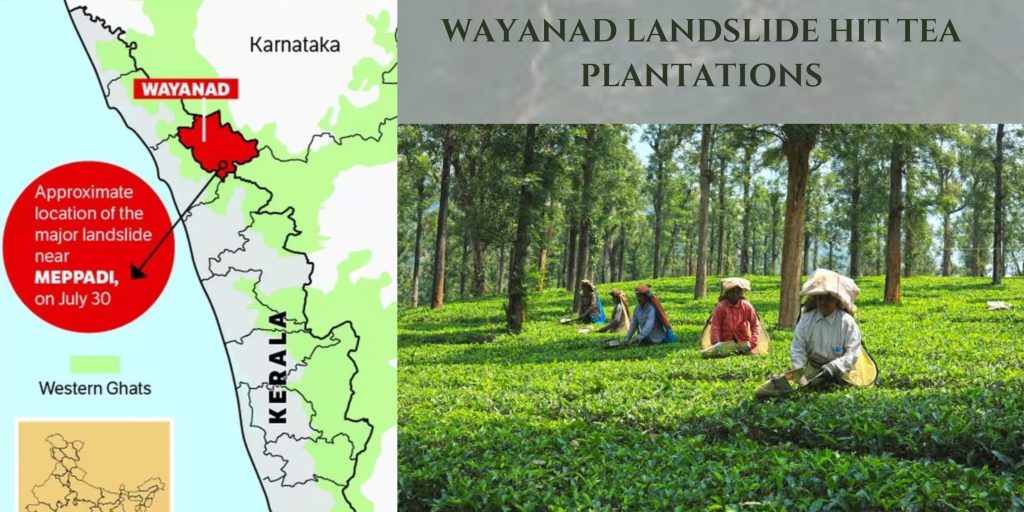
Anna Mathew
Chennai
The recent Wayanad landslide has disrupted tea production in the area, leading to an anticipated drop in prices as farmers rush to sell off their remaining stock.
An official from the Tea Board of Kerala, speaking on the condition of anonymity, said that the Tea prices, from Rs 15-16 per kg, are expected to drop to 20% which is Rs 12-13 per kg. “Farmers, especially small plantation growers, are likely to sell off their remaining tea leaves at auctions to secure any profit,” said the official. These farmers, who have lost land, workers, and homes due to the landslide, will accept any available price to make the most of their scarce resources said the official.
The landslide, which occurred in the Choormala-Meppadi belt of Wayanad caused significant damage to local tea plantations, disrupting production and creating logistical challenges for tea producers. The destruction of the Meppadi belt road, a critical route for transporting tea has created logistical issues said an employee of Ripon Tea Manufacturing unit in Wayanad who did not want to be named. Sentinel Rock Estate, owned by Harrisons Malayalam Ltd, lost nearly 5 hectares of tea plantations. The destruction of the Meppadi belt can create challenges in their operations as well said the official. Emails and phone calls to HML did not elicit a response.
K.C. Krishnadas, Secretary of the Wayanad Small-Scale Tea Growers Association (WSSTGA), said that small tea growers were already struggling with competition from larger companies like Harrisons Malayalam Ltd. The landslide worsened their plight, with long-term effects expected on their livelihoods, and the local tea industry said Krishnadas.
According to WSSTGA data, about 8000 small tea growers across 10 Grama Panchayats depend on the tea industry, with land holdings ranging from 50 cents to 5 acres. Nearly 30% of these growers are from the Meppadi belt estates, making them vulnerable to disasters.
Wayanad environmental activist N. Badusha said the landslide is a man-made disaster, because of the deforestation and quarrying driven by the region’s growing tourism industry. He said it could take more than a year for tea production to resume in the affected areas and up to 15 years for the land to regain fertility.

